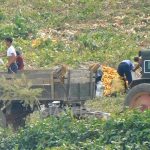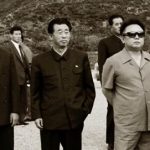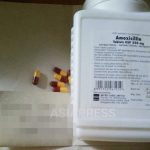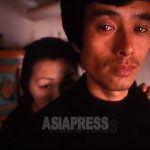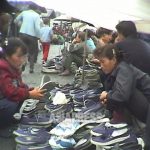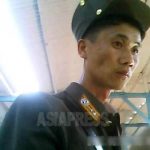◆Even the few domestic medicines are riddled with fake products
So, what about domestically produced medicines?
“There are a few medicines, aspirin (painkiller) and amoxicillin (an antibiotic often used in North Korea for bronchitis and colds), which are manufactured in North Korea. However, since there are so many fake medicines, people rarely take them,” said another reporting partner.
Therefore, even the hospital recommends people try folk remedies when they get sick, because that’s the only thing people can do at the moment. People drink tea made from wolfberry and goji berry as a cold medicine. Acupuncture treatments by skilled residents are very popular and cost 5,000 won (US$1.73) per session.
◆ Delivery of International Aid’s Anti-Tuberculosis Drugs Refused
On November 14, Science magazine published an article about an international aid group’s attempt to send anti-tuberculosis drugs to North Korea, and the authorities’ refusal or inability to accept them. South Korean media is now reporting on the matter too.
In addition, US$400,000 worth of anti-tuberculosis drugs prepared by aid groups are stuck in a container in India. The report by Science also included comments from an expert, saying that the anti-tuberculosis drugs must have almost expired by now.
Since tuberculosis causes symptoms similar to COVID-19, such as cough, phlegm, and fever, people in North Korea are strictly quarantined at home in accordance with the quarantine authorities' policy of "quarantining those under suspicion.” A local collaborator explained the situation in North Pyongan Province as follows.
“People are currently quarantined without treatment and medicine. Although there have been many cases of patients dying during quarantine, we don't know if they died of COVID-19 or tuberculosis. The authorities say that they died of tuberculosis.”
Even after a person dies, regulations over the corpse of the deceased are very strict.
“If a family member dies in quarantine, a car will come from the crematorium and take them away. We are not allowed to receive the remains and they will be kept at the crematorium. Many people used to scatter their ashes in the mountains or rivers after the funeral, but this is now strictly prohibited,” said a reporting partner from Ryanggang Province.
Restricting the importation of relief supplies and medicines is obviously an excessive measure to deal with COVID-19. The possibility that this will lead to an increase in the number of people dying from diseases other than COVID-19 is particularly concerning.
※ ASIAPRESS contacts its reporting partners in North Korea through smuggled Chinese mobile phones.
- <Inside N. Korea> “No Soap but Many Broken-Down Cars”: The Reality of Life Under the Paralyzed COVID-19 Economy (2020-12-22)
- Residents of N. Korea's Embattled Cities Face Starvation Amid Continuing Coronavirus Blockade (2020-12-16)
- Strict Coronavirus Prevention Measures Result in 99% Year-on-year Drop in Trade for October (2020-12-12)
- <Inside N. Korea> Residents Face Starvation as Border City is Blocked Off to Contain Potential COVID-19 Outbreak (2020-12-01)
- North Korea Under Strict Coronavirus Watch Again, Military Soldiers Ordered to Stay on Base (2020-11-26)
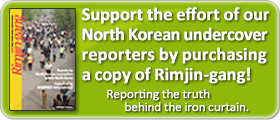 Editor’s notes on North Korean reporters
Editor’s notes on North Korean reporters
ALL REPORTS >>>
ARCHIVE(pdf) >>
DPRK MAP >>
